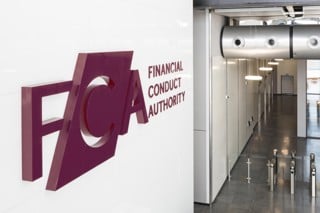F&I offerings behind better than expected new car sales
The Finance and Leasing Association’s head of motor finance, Paul Harrison, said the fact that new car sales last year were higher than anyone could have hoped for was largely due to showroom F&I offerings, which not only generated more footfall but also helped compensate for lean margins on the vehicles themselves.
“The profit on new cars is typically 1% or even less, compared with up to 15% on F&I, and the dealer is still incentivised by the manufacturer on 0% deals,” he said.
Harrison added: “Far from having to be persuaded about the attractions of dealer F&I offerings, customers are actually asking for them because of the change in economic circumstances.”
According to figures from FLA members, PCPs now account for 58% of deals, followed by hire purchase, lease and personal loans.
F&I sourced through manufacturers was most common, but only just at 55%.
On the insurance side, dealers report an increasing take-up of options ranging from GAP to tyre and paint protection.
“Many customers would find it difficult to get credit from anywhere other than the dealer in the current economic climate,” continued Harrison.
“Competition from the High Street has been reversed.
"And dealer offerings are different from the High Street loans, with the flexibility to tweak packages to suit individual needs. If a customer is expecting a work promotion, a PCP with its balloon payment is attractive.
“A bonus at work is an opportunity to put down a bigger deposit on something like a 0% option, and so on."
Nevertheless, Harrison warns against complacency, predicting that 2012 will see supermarkets join other direct lenders with “a renewed appetite” to win back market share lost to dealers.
That’s why the FLA is keen to maintain the momentum of its Specialist Automotive Finance scheme, which now has top dealer groups accounting for around 1,500 dealerships signed up.
Keep track of all finance enquiries
There is only one way to sell showroom used car finance successfully, says Adrian Foster, Remit F&I operations director: “It is essential that dealers handle the process with each customer in the same way every time they are in contact with them, but many don’t.
“People working in showroom sales teams are too inclined to trash enquiries by being judgemental about the prospects for arranging a loan.
That’s why it is essential to have a robust system so that enquiries go on to a showroom log and through to the dealer management system. Otherwise a possible F&I sale cannot be tracked and it will probably be lost.”
Remit F&I has taken measurements of how finance enquiries were tracked after initial calls to one dealer group’s 15 sites, which between them represent two brands.
The outlet that did best attracted 47 finance enquiries and sold 14 cars – the worst had 69 calls and sold two.
“Those that did worst failed because the details were lost somewhere along the route to the DMS,” said Foster.
“The significance is that in the dealerships attracting the most and fewest enquiries roughly half that were tracked properly all the way led to F&I sales.”
Foster urged dealers to stop this leakage of F&I enquiries.
Remit F&I believes it has spotted a gap in the market and offers business manager support to dealers, which he said can fill in the gaps during holidays and provide continuity beforehand and afterwards.
“There is a shortage of support from lenders,” he said. “Banks cut back on F&I managers after the financial crisis of 2008 – at least one made their whole team redundant.”
Foster, like all Remit directors, has worked in car showrooms. Remit used to be part of the RMI, which retains a 49% stake. Rob Foulston, chief executive of the RMI until he resigned two years ago, owns the controlling stake in Remit.


















Login to comment
Comments
No comments have been made yet.